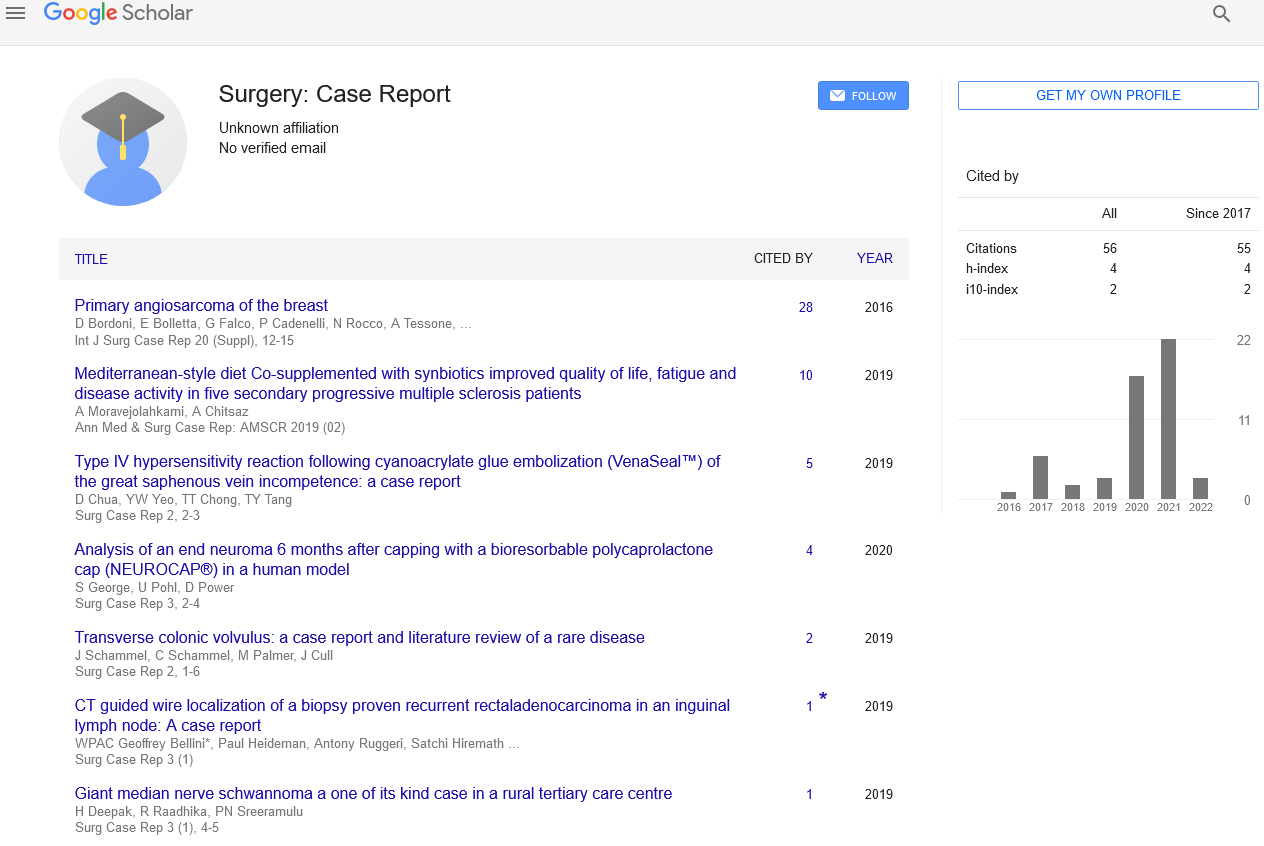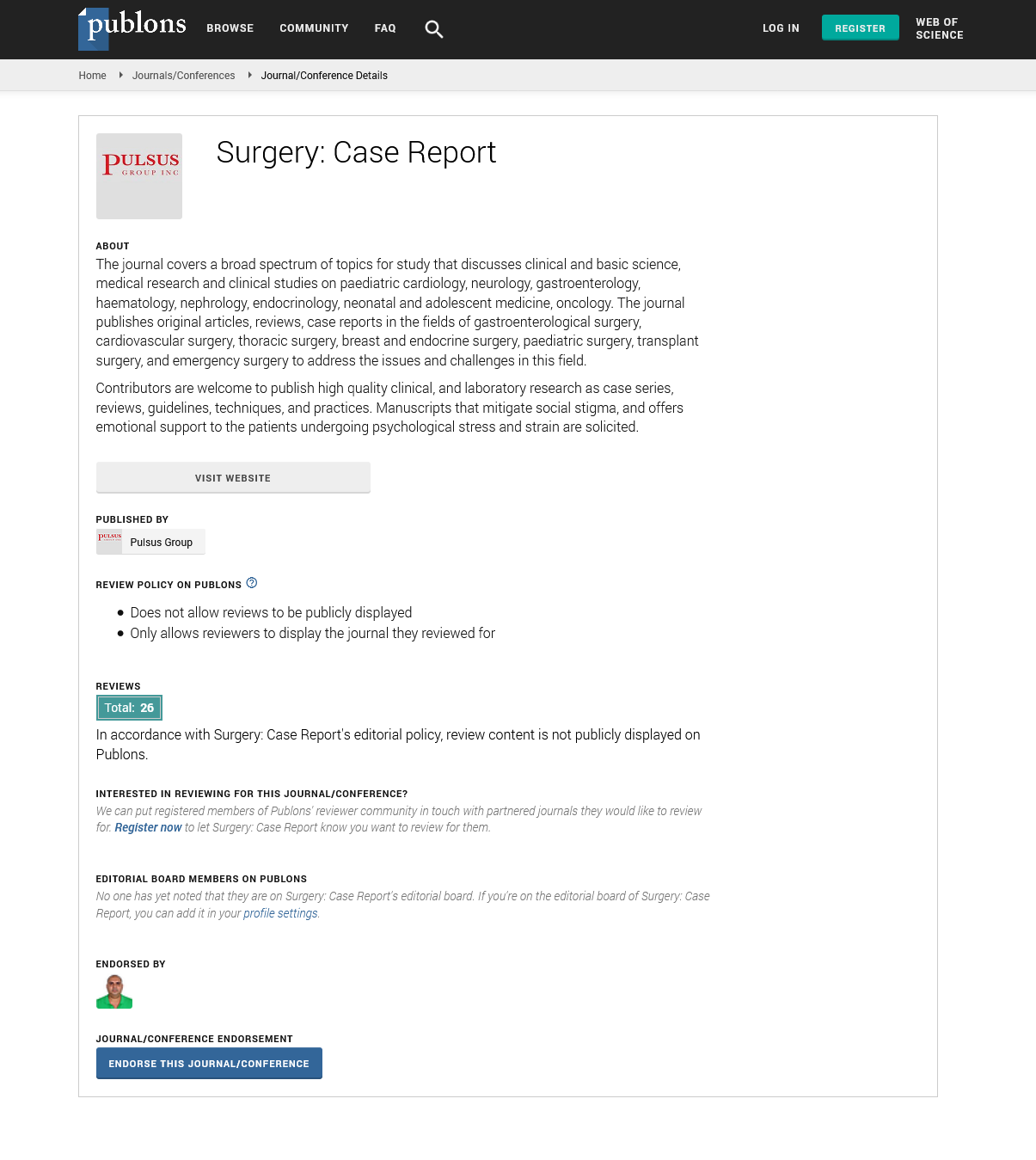women underrepresentation in surgical field overview
Received: 07-Sep-2021 Accepted Date: Sep 12, 2021; Published: 17-Sep-2021
Citation: Ajit SL. Women underrepresentation in surgical field: Overview. Surg Case Rep. 2021; 6(1):1-1.
This open-access article is distributed under the terms of the Creative Commons Attribution Non-Commercial License (CC BY-NC) (http://creativecommons.org/licenses/by-nc/4.0/), which permits reuse, distribution and reproduction of the article, provided that the original work is properly cited and the reuse is restricted to noncommercial purposes. For commercial reuse, contact reprints@pulsus.com
Editorial
From last decade females significantly have overtaken male majority in medical college admissions. Females represent 53.4 percent of admissions in last decade which is the largest percentage ever recorded. Women are still undersold in surgical training programmers, regardless of virtually equitable presence in med colleges. About 35 percent of general surgery trainees are female, and the percentage is considerably lower in several surgical subfields. Given the growing involvement of females in medical, cosmetic surgery, these fields remain a male-dominated field. Females comprised just 37 percent of Cosmetic Surgery trainees at the conclusion of the previous decade. Though it is expected to evolve and change as the amount of women apprentices grows, it really does bring up the subject of gender unfair treatment, organizational views regarding maternity and parenting, and a shortage of women leadership and mentorship in universities. Explicit gender prejudice has indeed been proven by pervasive salary inequities, a paucity of females in senior roles, and lady surgeons having greater turnover rates than men. Latent sex discrimination, that is more subtle and difficult to detect, is present at all degrees of specialization surgical training. This unconscious prejudice is able to impact female surgical residents’ perceptions and identity, contributing to the attitude difference between the sexes. Despite all med residents get similar results on objective exams, female trainees typically express poorer self-confidence and more anxiety than their male equivalents. Women surgeon students have also been associated with decreasing self-confidence. While this may appear being an individual or psychological defect; teachers who frequently characterize young women being “lower self-confident” than men trainees, irrespective of technical achievement, may be reinforcing sexist stereotypical thinking. Moreover, there is indication that assessed competency is influenced by self-belief. This is troublesome when scientific professors are biased and regard female somehow less capable at the outset, and women surgeons also have less freedom in the surgical procedures. Gender balance and equal representation is becoming more widely recognized, notably in economics, where it was discovered that multicultural teams function at higher level. Professional medicine, on the other hand, is still plagued by an “underrepresented minorities” in that few females hold high managerial role. Arbitration, conquering hurdles to administrational roles, childbearing and motherhood, sexist prejudice, sexual harassment, personal finance and retirement, and harmony between job’s vs. personal responsibilities are the few difficulties that females in plastic surgery confront regularly. In spite their increasing populations; females are making very low headway in plastic surgery equality. Females could also confront challenges that are predominantly experienced by females only, such as a loss of faith. In a sector wherein surgeons are “occasionally incorrect, although not in uncertainty,” a loss of confidence, whether apparent or genuine, will have a negative impact on anyone’s performance and career progress. Females tend less than males to apply for leadership roles and publish effectively, as well as to accomplish surgical training and become board certified. It is discovered that lady Plastic Surgeons have significantly better self-esteem than the overall female, and we discovered numerous variables that are linked to higher self-esteem. In order to encourage gender balance in academics plastic surgery, future studies must compare optimism in males and females to get more understanding into genesis of self-esteem, any current esteem gap, and its impact in female’s lack of representation.






